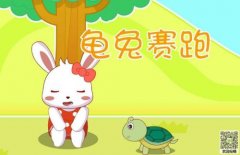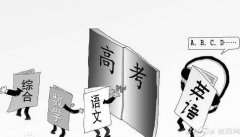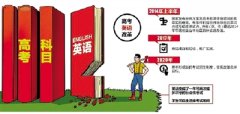泸化中学高2017级高一上期12月月考试题
泸化中学高2017级高一上期12月月考试题
英语
命题人:徐敬玫 杨燕 审题人:任华福
第I卷(共100分)
第一部分:听力(共两节,满分30分)
第一节(共5小题;每小题1.5分,满分7.5分)
听下面5段对话,每段对话后有一个小题,从题中所给的A、B、C三个选项中选出最佳选项,并标在试卷的相应位置,听完每段对话后,你都有10秒钟时间来回答有关小题和阅读下一小题。每段对话仅读一遍。
1. Where are the speaker?
A. At home. B. At the doctor’s. C. At a clothing store.
2. When will the man see a doctor?
A. On Thursday. B. On Tuesday. C. On Monday.
3. What are the speakers talking about?
A. Which seats they will choose.
B. How soon the performance will begin.
C. Whether there are tickets for the concert.
4. What does the woman want to do?
A. Go to hospital. B. Eat something cool. C. Make the man a cup of tea.
5. What will the man probably do on Saturday?
A. Invite the woman to his house.
B. Join a sports team.
C. Attend a party.
第二节(共15小题;每题1.5分,满分22.5分)
听第6段材料,回答第6、7题。
6. What does the man suggest buying for Anne at first?
A. A scarf. B. Chocolates. C. Flowers.
7. Where will the speakers go next?
A. To a garden. B. To a shop. C. To the teacher’s office.
听第7段材料,回答第8、9题。
8. What do we know about the woman?
A. She is overweight.
B. She has a heart disease.
C. She likes lemon juice a lot.
9. What can the woman eat besides vegetable salad?
A. Sugar. B. Seafood. C. Beef.
听第8段材料,回答第10至12题
10. How does the boy go to school?
A. By bike. B. On foot. C. By bus.
11. Where does the boy have lunch at school?
A. In a lunchroom. B. In a café. C. In his classroom.
12. How long does the boy usually stay at school?
A. Six hours. B. Seven hours. C. Eight hours.
听第9段材料,回答第13至16题。
13. What is the woman doing?
A. Suggesting a job.
B. Doing an interview.
C. Advertising a job.
14. What kind of people does the job want?
A. Someone who has an MBA.
B. Someone who can speak foreign languages.
C. Someone who has the experience of living abroad.
15. What is the date today?
A. The 3rd of June. B. The 3rd of July. C. The 3rd of August.
16. What will the woman do next?
A. Have a meeting with the man.
B. Complete the applications.
C. E-mail the man the advert.
听第10段材料,回答第17至20题
17. How will the students go on the trip?
A. By bus. B. By train. C. By bike.
18. When will the students leave on Monday?
A. At 6:00 a.m. B. At 8:00 a.m. C. At 10:00 a.m.
19. Where will the students meet on Monday morning?
A. At the side gate. B. At the front gate. C. At the back gate.
20. What will be provided for students?
A. Fruit juice. B. Lunch. C. Shoes.
第二部分:阅读理解(共两节,满分40分)
第一节:(共15小题;每小题2分,满分50分)
阅读下列短文,从每题所给的四个选项(A、B、C和D)中,选出最佳选项。
A
Moon Festival Celebration 2017
Presented by KY Chinese American Association
(KYCAA for short)
If you are really interested in Chinese culture, you are warmly invited to our Moon Festival Celebration.
Time:4:00pm-8:00pm,Wed, Oct. 4,2017
Place: Moondance Amphitheater, 1152 Monarch St, Lexington, KY 40513
Activities: Dance show performed by KYCAA Chinese School students
Tastes of mooncakes with a variety of flavors
Choices of mooncakes at excellent prices
Mini-Chinese language lessons
Best Cooking Fresh Mooncake" Competition
Dinner under the moon with families and friends
For more information, please visit www.Kycaa.org. or call 859 224-8072, or e-mail kycaapresident@gmail.com.
21.Which is TRUE about the celebration according to the poster?
A. It will last about four hours.
B. It's just for American Chinese.
C. It will be held in a Chinese school.
D. More information is only available online.
22.What activity can visitors do in the celebration?
A. Singing and dancing.
B. Selling excellent mooncakes.
C. Learning some Chinese.
D. Learning all Chinese culture.
23.For more information,you can EXCEPT_____________
A.visit www. kycaa.org. B. send an e-mail.
C. writer a letter. D. dial 859 224-8072
B
A Faithful Dog
More than seven hundred years ago, the Prince of Wales had a very big and brave dog called Gelert.
One day the Prince wanted to go hunting with his men. He told his dog to stay at home and look after his baby son. The baby was in a wooden cradle, which was like a small bed.
When the Prince came back from hunting, Gelert ran out to meet his master. He wagged his tail and jumped up to put his paws on the Prince's chest. Then the Prince saw the blood on Gelert's jaws and head.
"What have you done?" the Prince said. He rushed into his house and looked for his baby son. The cradle was lying on its side on the floor. The clothes were torn and there was blood on them.
"So you have killed my son?" the Prince said angrily. "You unfaithful dog!" He took out his sword and killed the dog. Just as Gelert was dying, he managed to bark. Then the Prince heard a baby call to the dog.
The Prince ran out of the house and saw his son lying on the ground unhurt. Near him was a dead wolf. Then the Prince knew that Gelert had defended the baby and killed the wolf.
The Prince ran back into the house but he was too late. Gelert was dead. The Prince was very sad indeed. Tears ran down his face when he realized he had killed his faithful friend. The Prince carried the body of his brave dog to the top of a mountain and buried him there. After this, the Prince never smiled again. Every morning at dawn, he walked up the mountain and stood by the dog's grave for a few minutes.
If you go to Mount Snowdon in Wales, people will show you where Gelert is buried. There is a sign by his grave. It reminds people of a brave and faithful dog.
24. Gelert was the dog of the Prince of ___.
A. Wales B. Scotland C. Ireland D. England
25. The Prince told the dog to _____ when he was leaving.
A. watch the door B. welcome his friends
C. take care of his baby at home D. stop the strangers
26. The dog was very ____ when his master came back from hunting.
A. fearful B. glad C. afraid D. tired
27. The Prince never smiled again because _______
A. the wolf was killed by Gelert
B. Gelert had killed his baby son
C. he had killed his faithful friend Gelert
D. he had buried the dog on the top of mountain
C
The idea that red means stop and green means go has influenced our lives in more ways than just traffic signals(信号). We have been taught from a young age that the color red means danger and green means it's okay to move forward. But why were those colors chosen for traffic lights in the first place? For something we have to look at every day, why couldn't they have been prettier colors?
Well, it's important to know that before traffic lights for cars, there were traffic signals for trains. At first, railway companies used red to mean stop, white to mean go, and green to mean warn. As you could imagine, trains ran into a few problems with white meaning go. For example, one train mistook a bright star for a white light and something unexpected happened. Because of that, railway companies finally moved green meaning go and used yellow to mean warn. And it's been that way ever since.
Red has always been a color that mean danger, long before cars were even around. This most likely started because it's the color with the longest wavelength (波长) so it can be seen somewhere farther than other colors.
But, believe it or not, yellow was once used to mean stop. Back in the 1900s, some stop signs were yellow because it was too hard to see a red sign in a poorly lit area. Finally, highly reflective materials (高反射材料) were developed and red stop signs were born. Since yellow can be seen well at all times of the day, school zones, some traffic signs, and school buses continue to be printed yellow.
So next time you are impatiently waiting at a traffic light, don't get so mad at them, they've certainly come a long way.
28. What were traffic signals for before traffic lights for cars?
A. Trains B. Boats. C. Planes D. Bicycles
29. Which of the following colors meant go at first?
A. Red. B. Yellow. C. White. D. Green.
30. Why does red mean danger?
A. Because it's the brightest color.
B. Because it can be seen far away.
C. Because railway companies say so.
D. Because it has the shortest wavelength.
31. What does the text mainly tell us?
A. How important traffic lights are.
B. Which color has the longest wavelength.
C. What red, yellow and green can be used for.
D. Why traffic lights are red, yellow and green.
D
If you want to learn anything at school, you need to listen to your teachers. Unfortunately, millions of kids can’t hear what their teachers are saying. And it’s not because these students are goofing off. Often, it’s the room’s fault. Building architecture and building design can create echo(回声)-filled classrooms that make hearing difficult.
Children with hearing impairments(损伤)suffer most from noisy classrooms. They sometimes can’t hear questions that other students ask in class. Compared with kids with healthy hearing, they have a harder time picking up new vocabulary words by hearing them in talking.
Even kids with normal hearing have a harder time in the classroom when there’s too much noise. Younger children in particular have trouble separating important sounds – like a teacher’s voice – from background noise. Kids with learning disabilities and speech impediments(障碍)and kids for whom English is a second language also have a harder time learning in noisy situations.
In recent years, scientists who study sound have been asking schools to reduce background noise, which may include loud air-conditioners and pipes. They’re also targeting outdoor noises, such as highway traffic. Noise reduction is a big deal. Why? Because quieter classrooms might make you smarter by letting you hear your lessons better.
“It’s so obvious that we should have quiet rooms that allow for access to the lesson,” says Dan Ostergren, a hearing scientist. “Sometimes it surprises me that we spend so much time discussing this topic. I just want to go. Why is this hard for anyone to grasp?”
32. The underlined part “goofing off” in the first paragraph can be replaced by “”.
A. lazy B. intelligent C. quiet D. careful
33. Who is most affected by noisy classrooms?
A. Children with learning disabilities. B. Children with speech impairments.
C. Children with hearing impediments. D. Children with normal hearing.
34. Why should noise be reduced in classrooms?
A. Quiet classrooms are suitable for kids to have discussions.
B. Quiet classrooms help kids recover from hearing impairments.
C. Kids can’t separate sounds of air-conditioners and pipes.
D. Kids can become smarter after hearing lessons better.
35. What would be the best title for the passage?
A. Classroom design B. Noisy classrooms
C. The sense of hearing D. Disabled kids
第二节:(共5小题,每小题2分,满分10分)
根据短文内容,从短文后的选项中选出最佳选项。选项中有两项为多余选项。
A good book can be satisfying. If reading is a habit you’d like to get into, there are some ways to develop it.
Realize that reading is enjoyable if you have a good book. If you have a difficult book and you are forcing yourself through it, it will seem like a task. 36
Set time. You should have some time during every day when you’ll read for at least 5 to 10 minutes. 37For example, make it a habit to read during breakfast and lunch and even dinner if you eat alone.
Always carry a book. 38When I leave the house, I always make sure to have my car keys and one book at hand. The book stays with me in the car, and I take it into the office and to appointments and pretty much everywhere I go.
39 Find a place in your home where you can sit in a comfortable chair. Don’t lie down unless you’re going to sleep. There shouldn’t be a television or a computer near the chair, and no music or no noisy family members/ roommates. If you don’t have a place like this, create one.
Reduce television/ the Internet. If you really want to read more, try cutting back on time on TV or the Internet. 40 But remember: every minute you reduce of the Internet/ TV, you could use for reading. This could create hours of book reading time.
A. Wherever you go, take a book with you.
B. Go to bookstores.
C. Have some good tea or coffee while you read.
D. Find a quiet place.
E. This may be difficult for some people.
F. If this happens, give up the book and find another one that you’ll really love.
G. It means you will read no matter how busy you are.
第三部分 英语知识运用(共两节,满分45分)
第1节 完形填空(共20小题:每小题1. 5分,满分30分)
阅读下面短文,从短文后各题所给的四个选项中,选出可以填入空白处的最佳选项,并在答题卡上将该项涂黑。
When my husband and I got married, he worked as a mechanic (机修工) from midnight to 8 a.m. However, I worked during the 41 . So as he came home from work each morning, I was getting ready to 42 .
We had very little 43 then, so when Valentine's Day(情人节) came around that first year, I knew we couldn't 44 anything for each other. After he left to go to work the night before Valentine's Day, I decided to 45 and make a Valentine's Day card for him. I 46 wrote a poem on the front of the card. When he came home the next 47 , I felt foolish as I handed him the card, 48 that he wouldn't laugh at it. When he had finished 49 it, he slowly raised his head and looked at me. Then he reached down into his pocket. When he pulled his 50 out, he was holding 51 .
He told me that he had 52 it for me during his lunch hour, but he had been 53 to give it to me because he thought I might think it was 54 ,and that I might laugh at it.
It was a small heart made out of aluminum (铝). 55 I had stayed up all night making him a valentine card, he had been cutting out a 56 for me. I still have the aluminum heart, and I 57 it in my desk. Every time I see it, all those 58 come flooding back to me. Over the years, we've been able to buy each other very nice, 59 presents for Valentine's Day. But none has ever been as dear or 60 as much as those handmade gifts made from our hearts the first year that we were married.
41. A. day B. night C. weekend D. holiday
42. A. cook B. leave C. rest D. help
43. A. time B. chance C. money D. energy
44. A. buy B. choose C. find D. borrow
45. A. look out B. call back C. slow down D. stay up
46. A. still B. only C. even D. again
47. A. morning B. noon C. afternoon D. evening
48. A. imagining B. hoping C. guessing D. noticing
49. A. studying B. reading C. examining D. playing
50. A. hand B. foot C. arm D. leg
51. A. everything B. anything C. nothing D. something
52. A. written B. drawn C. made D. invented
53. A. surprised B. happy C. angry D. afraid
54. A. wrong B. difficult C. dangerous D. stupid
55. A. Before B. Though C. While D. If
56. A. heart B. card C. toy D. book
57. A. change B. keep C. cut D. divide
58. A. problems B. pains C. memories D. choices
59. A. strange B. special C. expensive D. satisfying
60. A. meant B. proved C. influenced D. explained
第II卷(共50分)
第二节:短文填空 (共10小题,每小题1.5分,满分15分)
阅读下面短文,在空白处填入 1个适当的单词或括号内单词的正确形式。
I 61 (travel) to many places since I went to college. What impressed me deeply was 62 (I) travel to Tibet last year. I took the train there with my friends and enjoyed the scenery all the way. When the train was close to Tibet, I had 63 headache. Then I 64 (find) it difficult to breathe and felt 65 (tire). I knew that all my symptoms(症状) were called altitude sickness. And it took me a few hours to get used to it.
Tibet is known as the “Roof of the World” 66 has a number of famous 67 (place) of interest including Potala Palace and Mount Everest. So when I felt a little 68 (well), I couldn’t wait to head towards them. I was very happy 69 (see) that the top of Mount Everest was covered with snow even 70 July and when the sun came out, it became pure and beautiful.
第四部分 写作
第一节 短文改错 (共10小题,每小题1分,满分10分)
注意:1. 每处错误及其修改均仅限一词;
2. 只允许修改10处,多者(从11处起)不计分。
One day, in my way to school, I noticed two anxious foreigners was surrounded by a group of people. I stopped and found that they were tourist from Canada who carelessly left a very importantly wallet in a taxi. So I take them to the nearest police station. With help of the policemen, we got in touch with the taxi company. We were telling that the wallet had just been found. And two passports, flight tickets, or some money were still inside it. Finally the two Canadians got our wallet back. They thanked for me and left.
第二节 书面表达(满分25分)
假设你是新华中学高一学生李华。你的英国笔友Jim在给你的邮件中提到他很想了解你上次外出旅行的情况,请你给Jim回信,内容包括:
1. 旅行目的地及时间;
2. 选择该地点的原因;
3. 旅行中的收获。
注意: 1. 词数不少于100;
2. 开头和结尾已给出,不计入总词数。
Dear Jim,
Yours,
Li Hua
泸化中学高2017级高一上期12月月考试题
英语(答案)
听力
1-5 CACBC 6-10 ABACB 11-15 CBABA 16-20 CABCA
阅读理解
21-23 ACC24-27 ACBC28-31 ACBD32-35 ACDB36-40 FGADE
完形填空
41-45.ABCAD 46-50.CABBA51-55.DCDDC56-60.ABCCA
语法填空
61. have traveled 62. my 63. a 64. found 65. tired
66. and/which/that 67. Places 68. better 69. to see 70. in
短文改错
One day, in my way to school, I noticed two anxious foreigners was surrounded by
on were
a group of people. I stopped and found that they were tourist from Canada who carelessly
tourists
left a very importantly wallet in a taxi. So I take them to the nearest police station. With
important took
∧help of the policemen, we got in touch with the taxi company. We were telling that
the told
the wallet had just been found. And two passports, flight tickets, or some money were
and
![]() still inside it. Finally the two Canadians got our wallet back. They thanked for me and left.
still inside it. Finally the two Canadians got our wallet back. They thanked for me and left.
their
书面表达
Dear Jim,
It is great to hear from you. I’m writing to share my last travel experience with you.
During the National Day, my parents and I went to Xi’ an. We chose Xi’an for the following reasons. Serving as the capital city of 13 dynasties, Xi’an is often called the birthplace of Chinese civilization. Both my parents and I are interested in Chinese history, so the historical sites are always our favorite. Also, I’m doing a project about the Silk Road. The visit to Xi’an certainly benefited my research .
More importantly, our stay in Xi’an made me feel very proud to be Chinese.
How about your last travel? Looking forward to your reply.
Yours,
Li Hua




